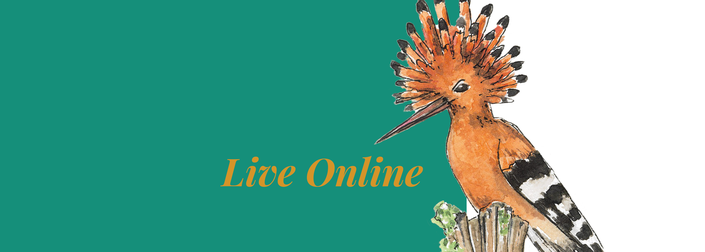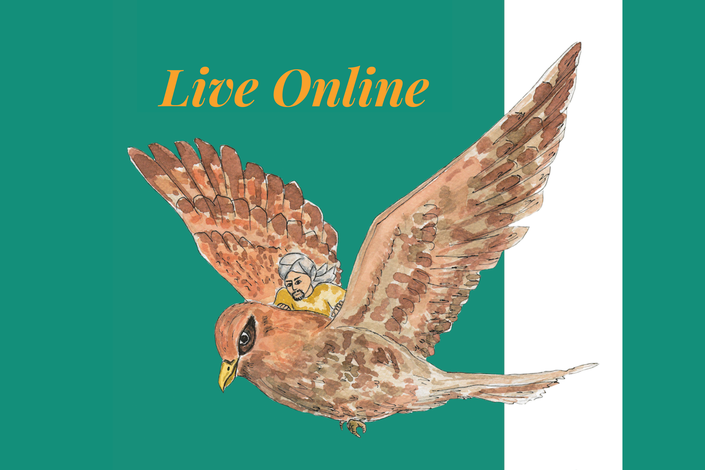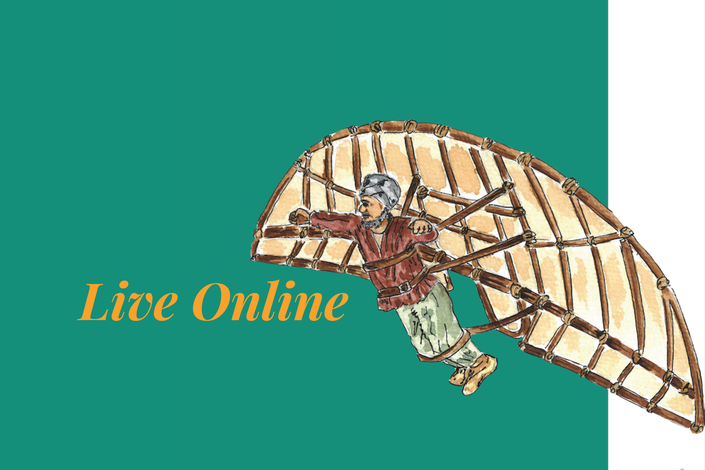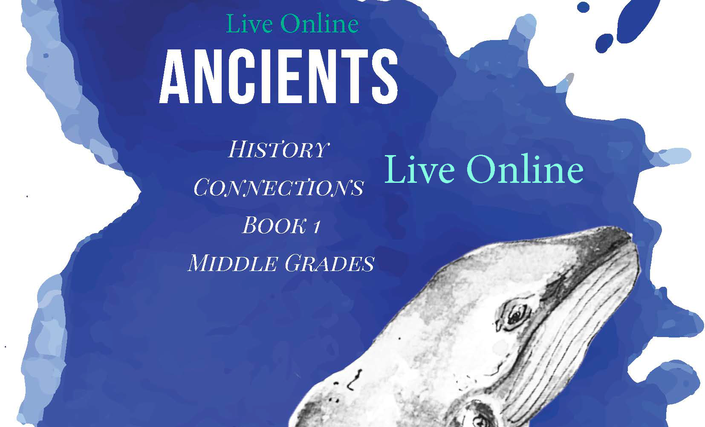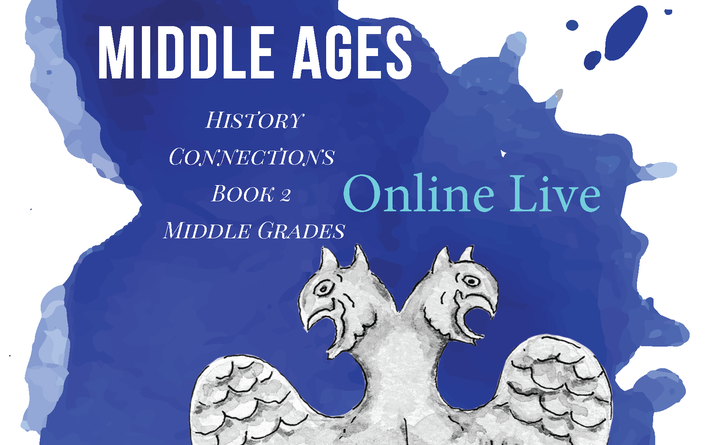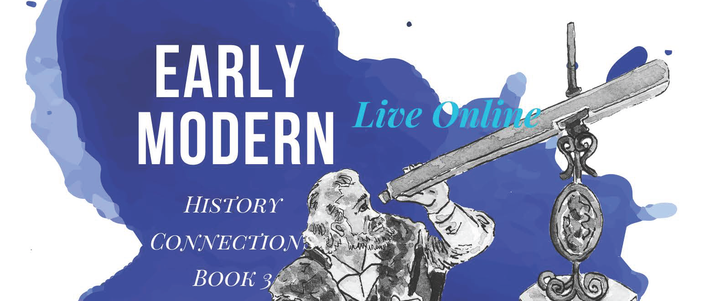
Modern
Primary Grade 4
Australia
The goal of this curriculum is for students to learn the ‘stories’ of history, to understand in broad terms what happened and how events can be connected. We do not expect students to memorize dates, names and places at this level, but rather aim for the student to have a broad understanding of the Islamic history in a global context.
This book integrates Islamic concepts into global history and is packed with hands-on activities, visuals. Additionally, the way information is presented caters to different learning styles, in accordance with our unique teaching methodology IDEALS (See more about this below).
The fourth book is best suited for primary students in grade 3 and 4 (or older), because the subjects include many abstract concepts. The Modern Era is a highly politicized era, and emotions can run high on many of the topics. We have attempted to give a balanced overview of the global history during this era, without losing our focus on what happened to the Ummah. The Ummah is globally spread out, with the highest concentrations of Muslims living in the Middle East. The Middle East is an area highly contested with many conflicting groups of people. The rise of concepts such as democracy, nationalism, development and industrialization, often have replaced the religion as the main driving force of forming communities, pushing the deen as such more to the background. Nonetheless, we will focus on what is happening in countries where the majority of people are Muslim, as part of our Ummah.
The Primary Modern History Course includes the following:
- Live Lessons on Zoom
- Printable sheets and maps
- Pages from History Intersections
All student pages will need to be downloaded and printed in color.
Should you prefer to have an actual book in hand, you can purchase a copy of the History intersections here and a copy of the student pages here!
Classes run Monday and Wednesday at 6 pm AEST/AEDT.
Live on Zoom
Starting February 2nd, 2026
Note: The class time will remain the same throughout the year and will not change when daylight saving time begins in Australia
Hurry up, we have limited spaces!
Please check out our Terms of Use for refund polices
Example Curriculum
Elements in the Lessons
All lessons have scripted discussion questions and detailed instructions. The digital program us broken up into 30 weeks. Each week will list the material needed for that week. All resources are included. You will need to prepare the materials for the activities, which are listed separately every week for your convenience. In every lesson there are several elements:
The Task Card on the first page of every weekly lesson lists an overview of the topic and the materials needed.
Materials: The teaching materials needed are listed in the first column.
Time: This time indication is based upon twice a block of 45 minutes.
Inquiry: throughout this curriculum, the parent is modeling asking questions. Students learn how to ask questions and extract information from images and maps. This is a pre- research skill.
Discussion: Discussion questions help students recap the major events in a story and practices comprehension.
Narration: Narration is intended to practice recalling and retaining information from a story.
Activities: Every week the child will complete an activity that relates to the topic of the week. This will help students internalize the information covered. Activities are varied and alternated, in order to keep students engaged.
Tracing a Map: The program asks the child to trace the Location Maps (provided). The action of physically tracing a map assures the information is integrated into memory. The mapping activity allows students to get familiar with geography and teaches them to pay attention to certain geographical landmarks, such as rivers and seas, mountain ranges and oceans.
World Wall Map & Wall Icons: Every week, the child will cut out and stick small icons on the World Wall Map to remember the events that have been discussed. It also gives a sense of where most of the events are happening on a global scale.
Path of Prophets: The Path of Prophets element is only used in combination with the prophet stories. This curriculum covers 12 prophets and their stories. A selection has been made, to highlight important stories and integrate these into the historical context.
It is essential for young children to be able to visualize information. Sticking the prophets’ names and images of the stories in chronological order is a pre-time lining skill and tangible activities help in the consolidation of information.
Extra Resources: At the end of every lesson, there are extra resources listed. We recommend that if your child expresses a particular interest in a topic, you allow extra time for the extra resources. Extra resources are optional and not part of this curriculum.
History Connections
History in Context
Learning about what happened in the past is essential to understand what is happening in our current society. Giving children a sense that they belong to a larger community is essential for their sense of belonging. Learning about a proud heritage teaches children self-esteem. Infusing this knowledge with Islamic concepts, teaches them good character. Mastering 21st century skills allows them to function in modern society.
Our History Connection series covers the ancients all the way up to the modern history and current issues. This series is intended for grade 1 through 8.
Every year students will take a chunk of this history. In the first book, students will cover from Creation to about 500 C.E. In the second book, they will cover from 500 C.E. until about 1650 C.E. The third era will cover from 1650 C.E. until the Industrial Revolution, approximately 1850 C.E. The last era, the Modern Era, will cover from 1850 C.E. until our current day.
All Eras have Islamic History integrated within global history, with more attention and time spend on important topics in the history of our Ummah.
The four books in this curriculum are consecutive, not only in chronological information but also in building skills.
This series does all that, and more.
Each curriculum covers a full year of 30 weeks. The curriculum is gradually progressing in skills and knowledge and is packed with activities and extra resources. Islamic concepts and knowledge are integrated as part of the history content.
Starting with an older student
For late primary students starting in Book 4, we recommend they read the paragraphs in the History Intersections and outline the information. Outlining is the process where the student writes down the most important point of each paragraph and numbers these points with Roman Numerals. The crafts are enjoyable for most students, although older students may be able to read the instructions themselves and complete the craft independently.
Some students find it difficult to read from a digital screen, and in this case we recommend you buy an actual hard copy of the resources (the Usborne Internet Linked History Encyclopedia and History Intersections) for ease of reading.
IDEALS
Our unique approach to learning is summed up in the acronym IDEALS, which covers several methodologies and skills we believe should be covered in all educational programs,whether for primary students or adults. IDEALS stands for Inquiry Based Learning, Differentiated Learning, Experiential learning, Aptitude Training, Lens of Islam, and Social-Emotional Learning.
Inquiry-based learning is an approach to learning that emphasizes the student's role in the learning process. Rather than the teacher telling students what they need to know, students are encouraged to explore the material, ask questions, and share ideas.
Differentiation means tailoring instruction to meet individual needs. Differentiation is a framework for effective teaching that involves providing all learners a range of different avenues for understanding new information.
Experiential learning is the process of learning through experience, and is more specifically defined as "learning through reflection on doing".
Aptitude Training determines how well-equipped students are to make good decisions and solve problems in their academic, professional and personal lives. Skills are the building blocks that allow students to apply the knowledge they acquire in an academic context to real world problems and situations.
Lens of Islam integrates Islamic knowledge into elements of the academic program in order to provide students with an Islamic lens to view the world and to create connections between the deen and the world at large. Viewing the world through an Islamic lens will increase a sense of purpose and meaning, and allows students to foster their Islamic identity and live with integrity.
Social-emotional Learning is the process through which students acquire and apply the skills necessary to manage emotions and social relationships. According to Goleman, social-emotional intelligence “emerges as a much stronger predictor of who will be most successful, because it is how we handle ourselves in our relationships that determines how well we do once we are in a given job”.
Related Products
Other levels in our digital History Connections program

